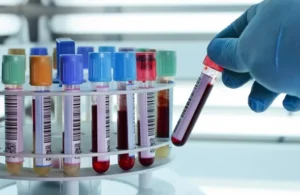
Genetic disorders and diseases
Genetic disorders are caused by changes in the DNA structure, that disrupt body function. Our body’s cells function thanks to the proper activity of genetic material, this means that even the slightest defect can cause a genetic disease.
Since genetic disorders harm the DNA itself, they usually cause extensive disturbances to the regular body function and result in severe diseases, though in cases of point mutations these may lead to less severe consequences. Since these diseases affect basic structures in our body, they are usually untreatable disorders, which the patient and their family must learn to handle.
Genetic defects that cause genetic disorders
Every disruption to the structure or function of the DNA can cause a genetic disorder.
The main genetic defects that cause genetic diseases are:
Chromosome abnormalities
DNA is divided into 23 pairs of chromosomes. most genetic disorders occur due to incorrect division of the chromosomes. certain abnormalities result from an extra chromosome while other result from a missing chromosome or changes in a chromosome’s location (translocations).
Severe chromosome abnormalities usually result in a miscarriage at the beginning of pregnancy. Less severe abnormalities cause different disorders.
The most common disorders caused by chromosome abnormalities are Down syndrome (caused by an extra copy of chromosome 21), Edwards syndrome (caused by an extra copy of chromosome 18), Patau syndrome (caused by an extra copy of chromosome 13), Cat eye syndrome, Klinefelter syndrome (caused by an extra X chromosome in men) and Turner syndrome (caused by a missing X syndrome in women).
Another type of chromosome abnormalities are balanced translocations. This is a condition where part of a certain chromosome attaches to another chromosome, with no clinical effect. In these cases, those with a balanced translocation do not have any health problems, but they may pass down defected chromosomes to their children through unbalanced translocations.
Point mutations
Some genetic disorders are caused by point mutations (small-scale changes to one base in the DNA). These mutations cause severe disruptions to genes that result in diseases. Point mutations can cause severe disorders such as Gaucher’s disease, neurofibromatosis, Hemophilia and other disorders.
Other DNA abnormalities
Abnormalities in DNA quantity (addition or deletion of genetic material) are known to affect development and cause different levels of autism and intellectual impairment. Too much or too little DNA can cause severe development impairment because of the incorrect defective genes.
When should you undergo genetic testing?
Genetic testing allows diagnosing and eliminating various genetic disorders. These tests are usually recommended in the following cases:
Pre-pregnancy testing
Couples planning a pregnancy usually undergo genetic testing, such as carrier testing, to make sure they are not carriers of any genetic disorders. If both parents are carriers of the same disease (have one gene of a certain disease that is not clinically apparent) the fetus could inherit two defective genes and develop the disorder.
Carrier screening is performed for several common diseases according to ethnic descent, family medical history and other risk factors.
During pregnancy
If a suspicion for a genetic disorder arises during the pregnancy, parents are recommended genetic tests – usually amniocentesis or CVS (chorionic villus sampling).
These suspicions can arise after abnormal ultrasound results, in cases of fetal developmental delay, or after abnormal screening tests results (nuchal translucency test, alpha-fetoprotein, maternal blood screening in the first trimester).
Genetic testing of children
Children with developmental disorders or other disorders are recommended genetic counselling and testing to diagnose hereditary disorders.
Genetic testing in adults
Adults can undergo genetic tests, these are usually offered to parents of children with a genetic disorder, in cases of recurrent miscarriage, or infertility.
Common genetic tests
There are many genetic testing methods.
Some of the popular tests are:
Karyotype test – karyotyping examines chromosomes through a microscope to identify excess or missing chromosomes.
FISH test – FISH testing uses fluorescent technology to identify aberrations in the number of chromosomes. This test’s biggest advantage over karyotyping is fast results usually given within 48 hours.
Comparative genomic hybridization (CGH) – also known as biochip testing, is a mapping of the human genome and comparing it to a standard genome to locate cases of excess of missing genetic material.

